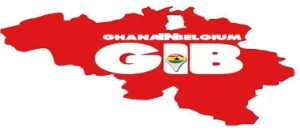 Ghana could lose out on the third tranche of $116 million from the International Monetary Fund (IMF) if government goes ahead to pass an amendment bill on borrowing from the Central Bank.
Ghana could lose out on the third tranche of $116 million from the International Monetary Fund (IMF) if government goes ahead to pass an amendment bill on borrowing from the Central Bank.
The amendment to the Bank of Ghana Act will allow government to borrow from the Central Bank not more than 5% of the previous year’s revenues. This will be a departure from an agreement with government not to borrow a dime from the Bank of Ghana in the three-year period of the credit agreement.
The Fund has become a supervisor of Ghana’s economy after government entered into a 3-year extended credit facility agreement with the IMF in 2014.
Ghana is expected to receive $918 million from the IMF, released in three separate tranches. If government behaves well according to the IMF, government gets approval for a tranche.
After a first tranche of $116 million was transferred in January 2015 and another $114.6 million and a second tranche approved in September 2015, the IMF expressed satisfaction with government saying “the program is on track”.
But signs of a clash were already on the wall when in the second approval, the IMF expressed disquiet about government’s inability to meet the mark set for borrowing from the Central Bank.
“…all performance criteria [were] met except for the ceiling on central bank financing to the government which was technically missed by a small margin”.
Thus after receiving two tranches totaling more than $230 million, it is the third tranche that could pose a tricky piece of negotiation.
Member of Parliament’s Finance Committee, Dr. Mark Assibey Yeboah, suspects the Fund may not release the third tranche because government is “not sticking to the rules of the game”.
He said government entered into a bad agreement with the IMF when it promised to pass the amendments to scrap borrowing from the BoG.
The current law allows up to 10% borrowing of the previous year’s revenue. But government over the years has exceeded this limit prompting the IMF to move to scrap off borrowing entirely.
“How can you go and agree that there should be zero percent financing?” he expressed contempt for the decision.
He said the “bad negotiations” is also an affront to parliament because it suggests that the Executive has Parliament in its pocket.
“The ministry can only submit these bills to parliament. Can you pre-empt what parliament is going to do? You can’t force parliament’s hand in the deal”, he told Joy Business.
The Board of the IMF is expected to meet next month to decide on the next tranche to Ghana but to Dr. Assibey Yeboah, the deal may be off.
“From where I sit and how I see things, the IMF has technically suspended the program with the country”, he maintained.
google.com, pub-6336011652228911, DIRECT, f08c47fec0942fa0









